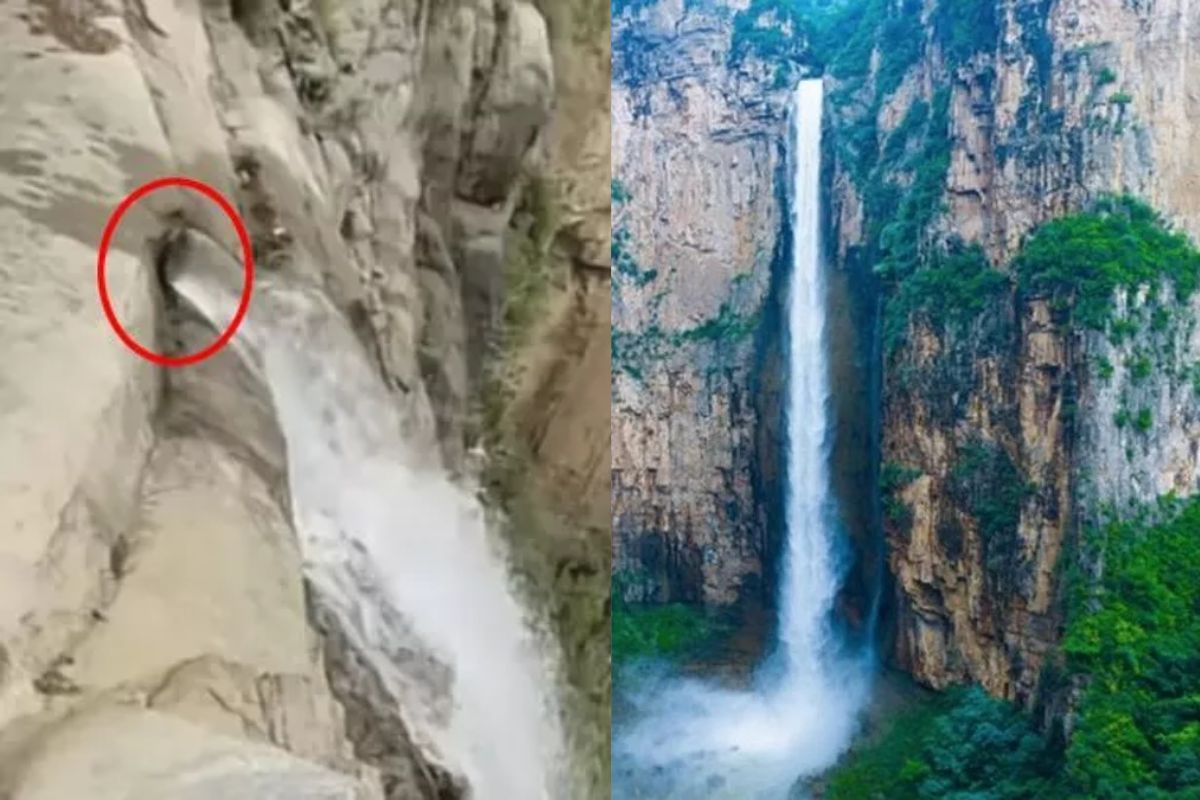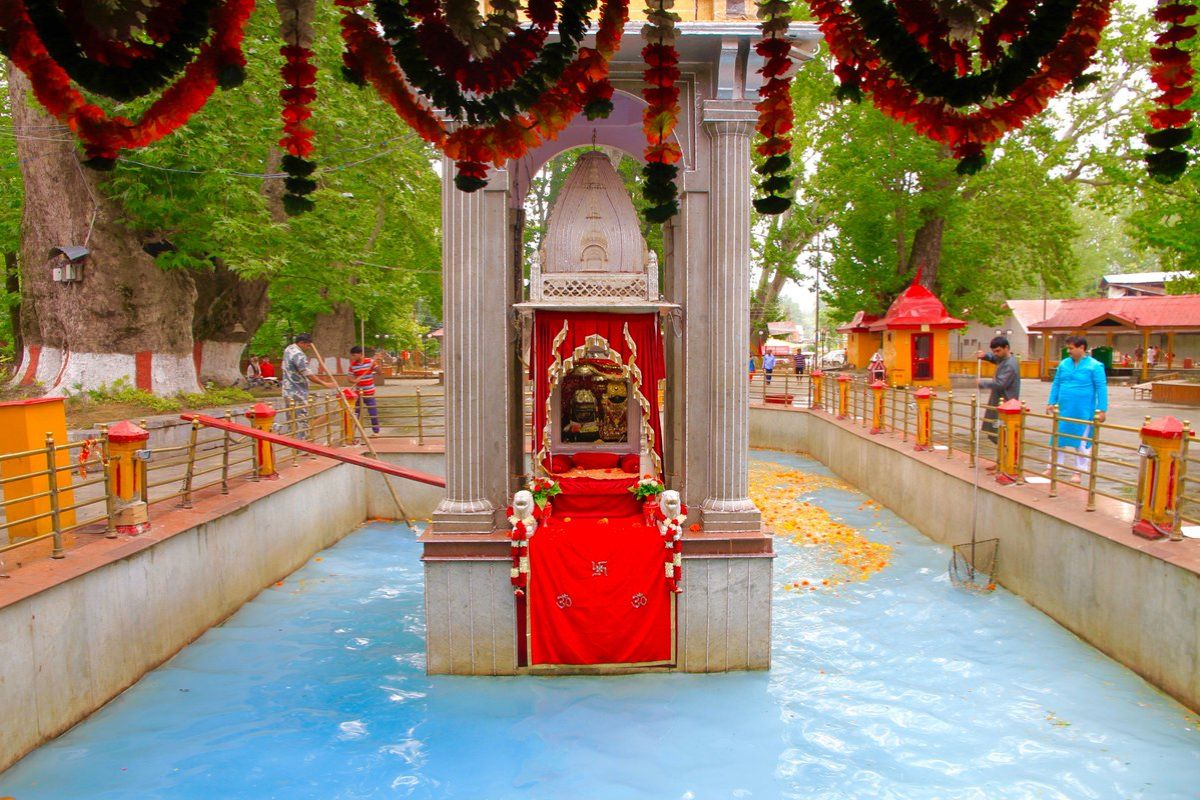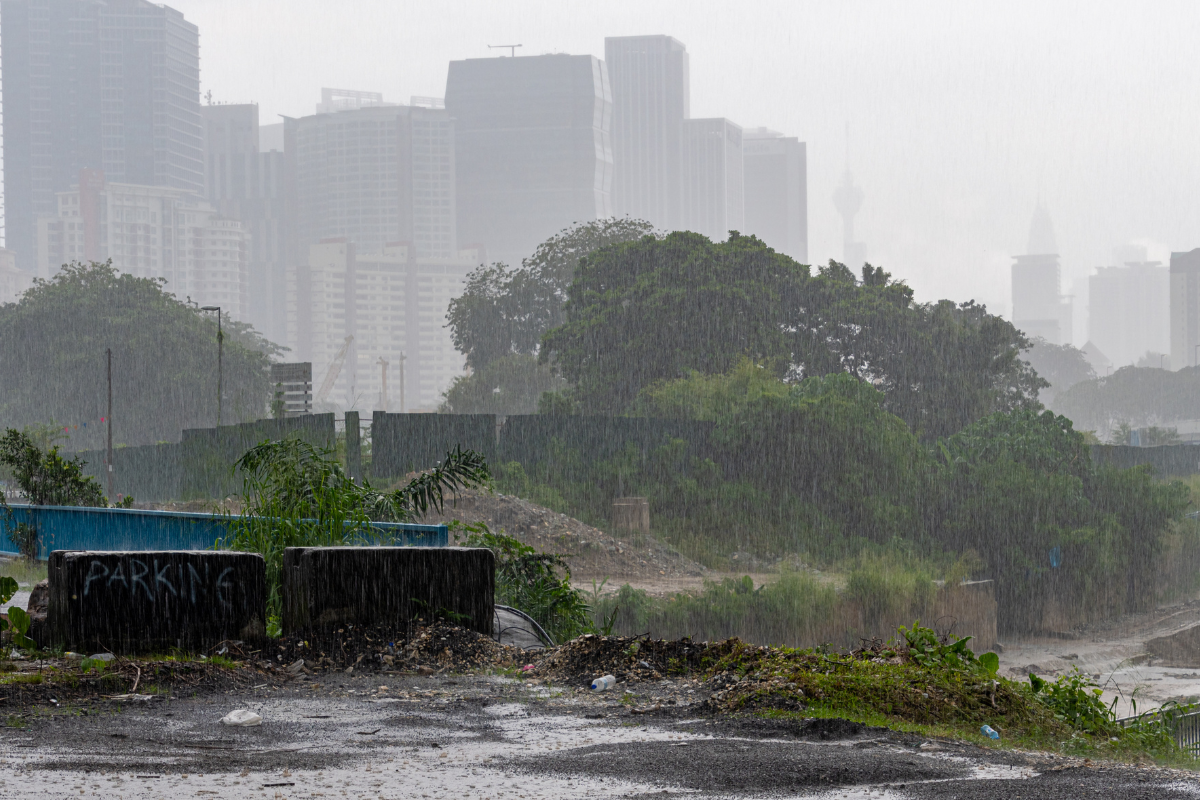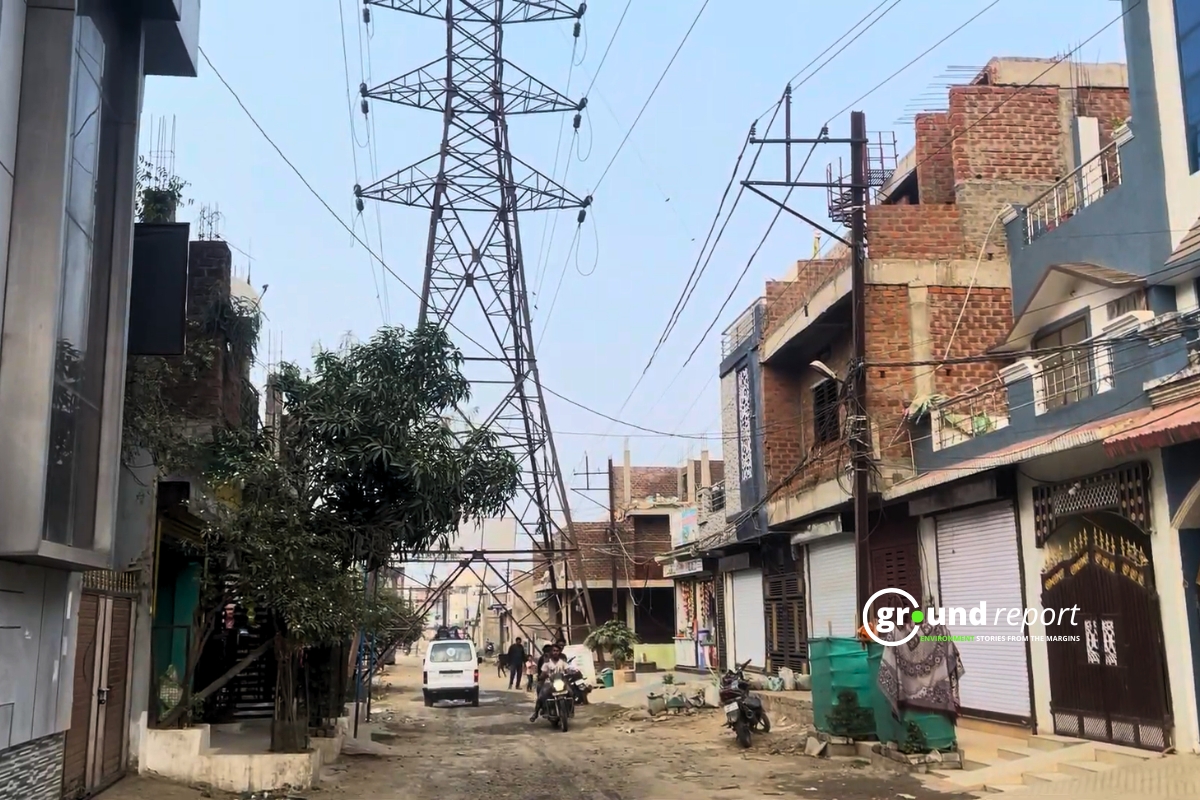China’s tallest waterfall, Yuntai Mountain Waterfall, was revealed as artificial, with a discreetly built pipe to supplement the water. This revelation sparked a debate, with some praising the ingenuity and others decrying the deception.
The whistle was blown by an unsuspecting hiker, whose video of water gushing from the artificial structure has gone viral on Weibo and Douyin, China’s social media platforms. The footage, viewed over 14 million times, has left netizens awestruck and outraged.
“The one where I went through all the hardship to the source of Yuntai Waterfall only to see a pipe,” the poster using the alias “Farisvov” sarcastically captioned the video, which has garnered tens of millions of views.
Faced with evidence, Yuntai Mountain Geopark officials, adopting the waterfall persona, took to social media to acknowledge the “small enhancement” during the dry season. “I didn’t expect to meet everyone this way,” they posted, attempting to diffuse the controversy.
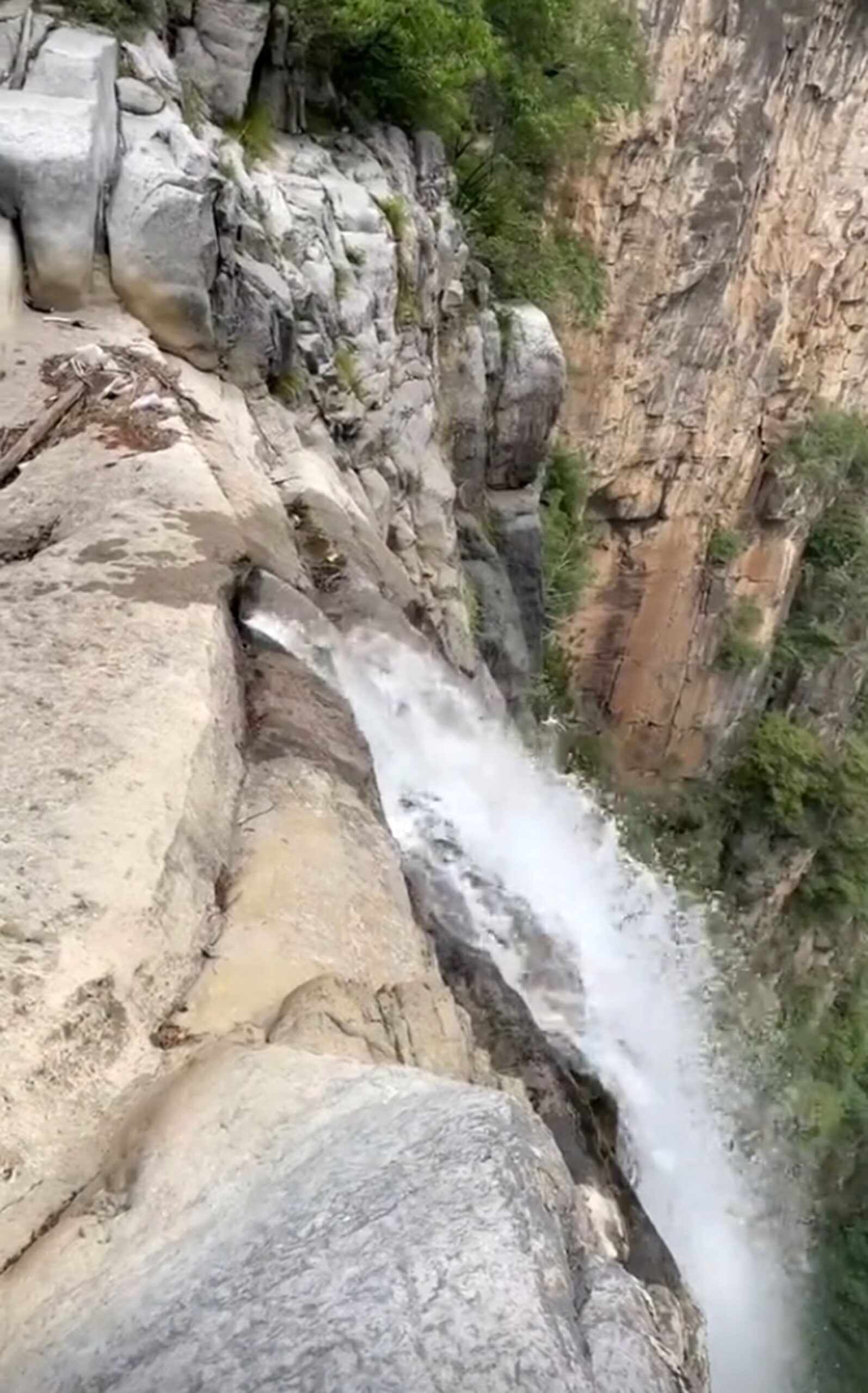
park officials admitted to making a
“small modification”
to the falls to ensure tourists see
it in all its glory.Photo credit: Douyin
The Yuntai Mountain Waterfall in Henan province, eastern China, is officially the highest in Asia, with a 314-meter drop. Its status as China’s No. 1 waterfall, touted as the tallest uninterrupted falls in China, has been questioned by netizens.
The discovery sparked a heated debate on Chinese social media, with divided opinions. Some defended the enhancements, with one Weibo user stating, “People would be disappointed if they end up seeing nothing there,” according to the BBC.
Others accused the park of “not respecting the natural order and tourists,” questioning whether the waterfall should retain its status due to the artificial intervention.
China’s water scarcity and drought may explain the park’s decision to increase the waterfall’s flow. According to China Daily, the country has only 6% of global freshwater resources despite having 17% of the world’s population.
The 2022 drought peaked in August, devastating the country’s surface water resources, dropping to 7% below the 10-year average level for 2012-2021, as reported by the BBC.
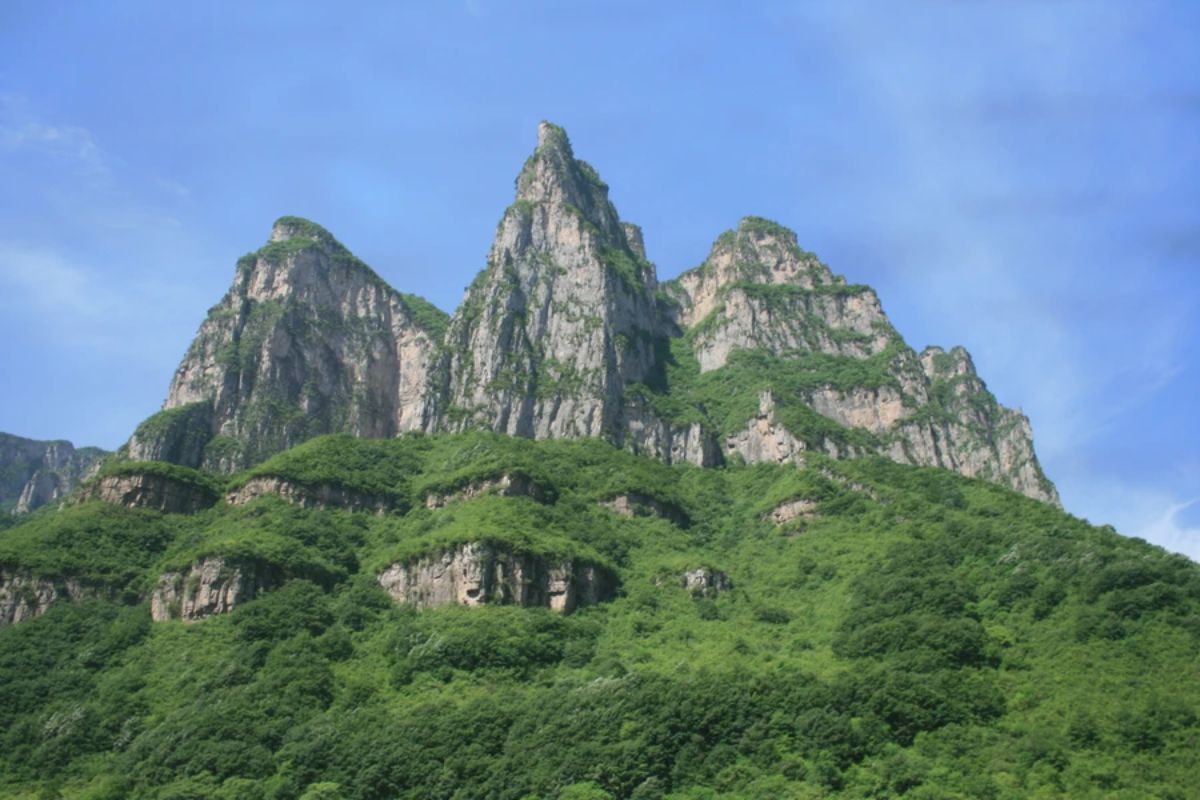
In response to the water crisis, China has undertaken ambitious projects, including the South-North Water Transfer Project, which aims to transport water from the Yangtze River through canals to alleviate the water shortage in the north. This mammoth engineering endeavor, initiated in the 1950s and slated for completion in 2050, is expected to cost around $62 billion, according to earth.org.
The Yuntai Mountain Waterfall incident isn’t the first time China has enhanced natural attractions. The Huangguoshu Waterfall, another tourist destination, has been boosted with water from a nearby dam since 2006.
The Yuntai Mountain Waterfall saga highlights the balance between preserving natural wonders and accommodating tourism and resource scarcity. It also shows the challenges China faces in managing water resources amid climate change and rapid development.
Whether seen as a clever solution or a betrayal, the unmasking of China’s tallest waterfall has captured the nation’s attention, sparking a conversation about the ethics of artificial enhancements and the need for sustainable practices in preserving natural treasures.
Keep reading
Follow Ground Report for Environmental News from India. Connect with us on Facebook, Twitter, Koo App, Instagram, Whatsapp and YouTube. Write us on GReport2018@gmail.com and subscribe our free newsletter.
Don’t forget to check out our climate glossary; it helps in learning difficult environmental terms in simple language.
